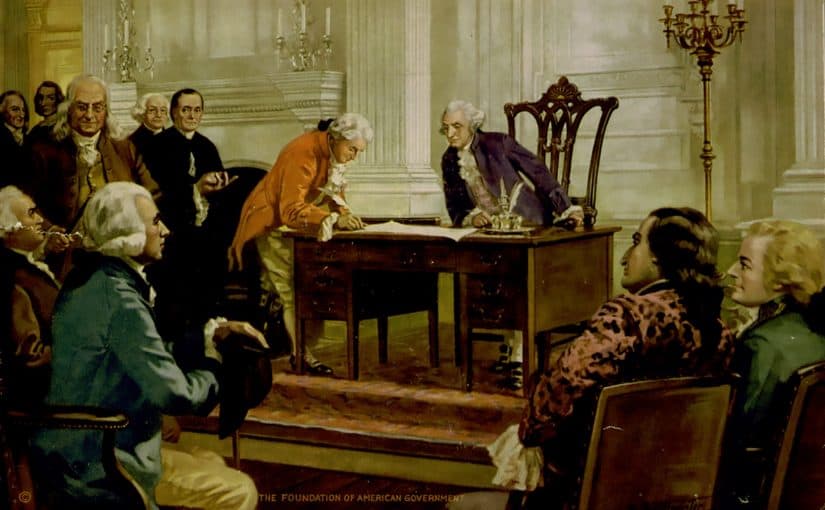An Epilogue to Nine Biblical Principles that Expose the Social Justice Movement and Marxism as Contrary to Authentic Christianity: A Bible Study
We will look for the permanency and stability of our new government to Him who bringeth princes to nothing and teacheth senators wisdom.
—John Hart, a delegate to the Second Continental Congress from New Jersey and a signer of the Declaration of Independence—
Righteousness exalts a nation,
But sin is a reproach to any people.…Blessed is the nation whose God is the LORD.
—Proverbs 14:34; Psalm 33:12—
This study is available as a PDF download here. The PDF is without hyperlinks and with only a few sources cited, but it provides a URL to this, the online version of the article, for readers’ reference and convenience.
In our newly-released interactive article titled “Nine Biblical Principles that Expose the Social Justice Movement and Marxism as Contrary to Authentic Christianity: A Bible Study,” we examine nine biblical principles that refute Marxism. What did the Founding Fathers of the United States believe about these biblical principles? The answers are enlightening, encouraging, and challenging, all at once. In this article, I’d like to examine what the Founders believed about each of the principles we highlight, as well as what they believed about two other important matters we talked about in the study — justice and liberty.
Here are the nine biblical principles we discussed, along with what Marx said about each one, and a few quotes from America’s Founding Fathers indicating what they believe about that idea or ideal.
Principle 1

The God of the Bible, and none other, is God; and we are to acknowledge and revere Him and Him only. (See Ex. 20:1-3; Deut. 5:5-7; 13:4; Neh. 9:6; Ps. 14:1.)
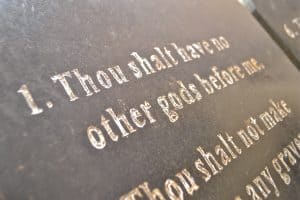
By contrast, Marx said,
-
-
- Communism begins where atheism begins.
- My object in life is to dethrone God and destroy capitalism.
- There are, besides, eternal truths, such as Freedom, etc., that are common to all states of society. But Communism abolishes eternal truths, it abolishes all religion, and all morality, instead of constituting them on a new basis; it therefore acts in contradiction to all past historical experience.
-
Numerous Founders made statements about this, including Benjamin Franklin, Josiah Bartlett, George Washington, and Patrick Henry.
Benjamin Franklin (1706-1790) said, “Whoever shall introduce into public affairs the principles of primitive Christianity will change the face of the world.”
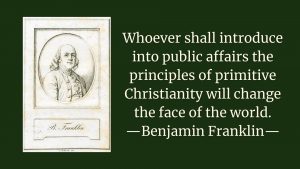
Josiah Bartlett (1729-1795) was a delegate to the Second Continental Congress from New Hampshire and signed the Declaration of Independence. He became the fourth chief executive of the state of New Hampshire and led the state from June 5, 1790-June 5, 1794. In 1792, Bartlett had issued a proclamation in which he
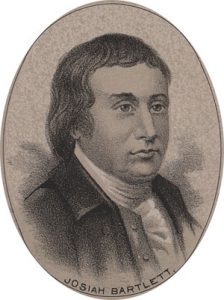 Called on the people of New Hampshire…“to confess before God their aggravated transgressions and to implore His pardon and forgiveness through the merits and mediation of Jesus Christ…[t]hat the knowledge of the Gospel of Jesus Christ may be made known to all nations, pure and undefiled religion universally prevail, and the earth be fill with the glory of the Lord.”
Called on the people of New Hampshire…“to confess before God their aggravated transgressions and to implore His pardon and forgiveness through the merits and mediation of Jesus Christ…[t]hat the knowledge of the Gospel of Jesus Christ may be made known to all nations, pure and undefiled religion universally prevail, and the earth be fill with the glory of the Lord.”
In his Farewell Address in 1792, George Washington (1732-1799) declared,
Of all the dispositions and habits which lead to political prosperity, religion and morality are indispensable supports. In vain would that man claim the tribute of patriotism, who should labor to subvert these great pillars of human happiness, these firmest props of the duties of men and citizens. The mere politician, equally with the pious man, ought to respect and to cherish them. A volume could not trace all their connections with private and public felicity. Let it simply be asked: Where is the security for property, for reputation, for life, if the sense of religious obligation desert the oaths which are the instruments of investigation in courts of justice ? And let us with caution indulge the supposition that morality can be maintained without religion.…[R]eason and experience both forbid us to expect that national morality can prevail in exclusion of religious principle. [Also go here.]
Founding Father Patrick Henry (1736-1799) issued this warning: “It is when a people forget God, that tyrants forge their chains.”
It is when a people forget God that tyrants forge their chains.
—Patrick Henry—
Principle 2
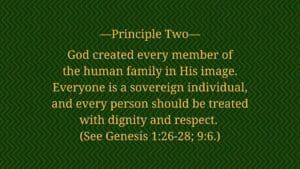

God created every member of the human family in His image. Everyone is a sovereign1 individual, and every person should be treated with dignity and respect. (See Gen. 1:26-28; 9:6.)
Marx denied this biblical tenet. He said,
By contrast, Thomas Jefferson (1743-1826) penned these now well-known words:2 “We hold these truths to be self-evident: that all men are created equal; that they are endowed by their Creator with certain unalienable rights; that among these are life, liberty, and the pursuit of happiness.”
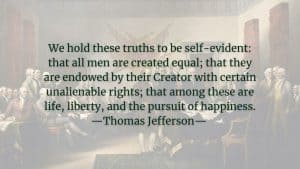
Significantly, this statement was prominent in the Declaration of Independence, a document that gave birth to the United States of America and that was signed by fifty-six of America’s Founding Fathers.
Principle 3
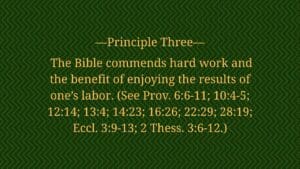
The Bible commends hard work and the benefit of enjoying the results of one’s labor. (See Prov. 6:6-11; 10:4-5; 12:14; 13:4; 14:23; 16:26; 22:29; 28:19; Eccl. 3:9-13; 2 Thess. 3:6-12.)
On the other hand, Karl Marx said:
-
-
-
- A heavy or progressive or graduated income tax is necessary for the proper development of Communism.
- From each according to his abilities, to each according to his needs. Marx was referring to government redistribution of wealth, a tenet of the social justice movement.
-
-
Here are some statements made by some of America’s Founders on this subject.
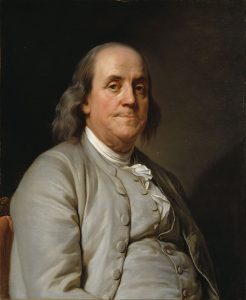
Benjamin Franklin (1706-1790) explained that in his travels, he’d seen the effects of what today we would call welfare. He contended, “[T]he more public provisions were made for the poor, the less they provided for themselves, and of course became poorer…[taking] away from before their eyes the greatest of all inducements to industry, frugality, and sobriety, by giving them a dependence of somewhat else than a careful accumulation during youth and health for support in age and sickness.” Franklin also said, “The best investment is in the tools of one’s own trade.”
Thomas Jefferson (1743-1826) said this: “To take from one because it is thought that his own industry and that of his father’s has acquired too much, in order to spare to others, who, or whose fathers have not exercised equal industry and skill, is to violate arbitrarily the first principle of association-the guarantee to every one of a free exercise of his industry and the fruits acquired by it.”
James Madison (1751-1836) wrote, “Charity is no part of the legislative duty of the government.”
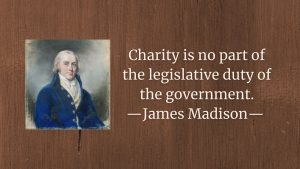
Principle 4
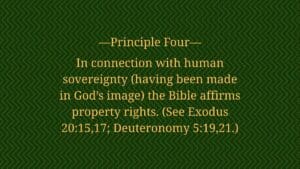
In connection with human sovereignty (having been made in God’s image) the Bible affirms property rights. (See Ex. 20:15,17; Deut. 5:19,21.)
Karl Marx was vehemently opposed to the idea of private property.
The theory of Communism may be summed up in one sentence: Abolish all private property.
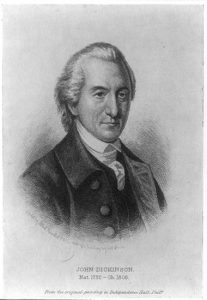
America’s Founding Fathers held that property rights were foundational to a people’s freedom and prosperity, and that individual prosperity makes possible the strength and prosperity of a nation.
George Washington (1732-1799) believed that “Freedom and Property Rights are inseparable. You can’t have one without the other.”
John Dickinson (1732-1808; brief bio here) said, “Most men with nothing would rather protect the possibility of becoming rich than face the reality of being poor.” Thus, Dickinson believed the best about those who, for whatever reasons, had fewer financial resources than others. Generally speaking, he did not believe they were victims. He knew they were competent and capable of working diligently to improve their situations.
Most men with nothing would rather protect the possibility of becoming rich than face the reality of being poor.
—John Dickinson—
John Hancock (1737-1793) held that successful businessmen not only helped themselves, but their country as well. He said, “The more people who own little businesses of their own, the safer our country will be, and the better off its cities and towns; for the people who have a stake in their country and their community are its best citizens.”
Principle 5

The Bible affirms economic freedom, including the exchange of what one owns for something else.3 This implies benefit for both the buyer and the seller. (See Genesis 23; Matt. 13:44-46; 20:1-16; 24:45-51; 25:14-30; Mark 12:1-9; Luke 10:25-37.)
Karl Marx viewed economic freedom with disdain.
Here are statements from two of America’s well-known Founders, John Adams and James Madison.
John Adams (1735-1826) held a strong belief that “Property must be secured, or liberty cannot exist.”
James Madison (1751-1836) wrote, “Where an excess of power prevails, property of no sort is duly respected. No man is safe in his opinions, his person, his faculties, or his possessions.”

Principle 6

The Bible commends charity from individuals, the church, and, by extension, faith-based organizations. (See Lev. 19:9-10; 23:22; Deut. 24:20-22; Prov. 14:21; 17:5; 19:17; 22:9; 28:3; 29:7; Acts 11:27–30; Rom. 15:25–27; 1 Cor. 16:1–4; 2 Cor. 8:1–9:15; Gal. 2:9-10; Eph. 4:28.) Karl Marx believed the state should take from those who have to give it to those in need. With socialism, government coercion is the order of the day.
From each according to his abilities, to each according to his needs.
Let’s hear from George Washington, Thomas Jefferson, and James Madison on this issue.
George Washington (1732-1799) said this: “Let your heart feel for the afflictions and distresses of every one, and let your hand give in proportion to your purse; remembering always the estimation of the widow’s mite, but, that it is not every one who asketh that deserveth charity; all, however, are worthy of the inquiry, or the deserving may suffer.”
Thomas Jefferson (1743-1826) warned against taking “from the mouth of labor the bread it has earned.”

James Madison (1751-1836) declared, “It is the mutual duty of all to practice Christian forbearance, love, and charity toward each other.”
Principle 7

Parents are responsible before God for the education and training of their children. (See Deut. 6:4-25; Prov. 1:8; 3:12; 6:20; 10:1; 13:1,24; 15:20; 17:25; 22:15; 23:13-14; 28:7; 29:15; Eph. 6:1-4. Do not be overly concerned about the references in Proverbs to “beating” one’s child or children. The emphasis is on appropriate discipline; this is not authorization for abuse.)
Karl Marx, by contrast, believed that children belonged to the state.
Contrast Marx’s belief to the beliefs of these Founding Fathers: Benjamin Franklin, John Adams, James Madison, and Noah Webster.
Benjamin Franklin (1706-1790) wrote, “A nation of well-informed men who have been taught to know and prize the rights which God has given them cannot be enslaved. It is in the region of ignorance that tyranny begins.”
John Adams (1735-1826) believed strongly in the family and the productive work in which families engage. He stated, “As long as Property exists, it will accumulate in Individuals and Families. As long as Marriage exists, Knowledge, Property and Influence will accumulate in Families.” Notice that Adams tied knowledge (education), property, and influence to family life. He clearly believed these were intertwined.
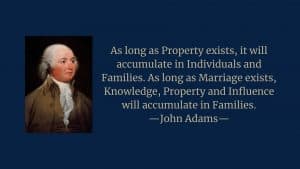
Along with the other Founders, James Madison (1751-1836) believed that an education grounded in truth and understanding would enable a people to be industrious, self-governing, and free. Madison wrote, “Knowledge will forever govern ignorance; and a people who mean to be their own governors must arm themselves with the power which knowledge gives.” Madison’s reference to self-government demonstrates that the fourth chief-executive of the United States was not an advocate of state ownership of children, nor was he an advocate of children’s being educated exclusively by the state.

Noah Webster (1758-1843) rejoiced that in early America, private and public institution cooperated with the home in upholding the truths of Christianity and in educating members of future generations. Webster said, “Every civil government is based upon some religion or philosophy of life. Education in a nation will propagate the religion of that nation. In America, the foundational religion was Christianity. And it was sown in the hearts of Americans through the home and private and public schools for centuries. Our liberty, growth, and prosperity was the result of a Biblical philosophy of life. Our continued freedom and success is dependent on our educating the youth of America in the principles of Christianity.”
Principle 8

Government’s job is to maintain order in society by commending those who do right and punishing those who do wrong. Nowhere in Scripture do we see any indication that it is government’s job to meet people’s needs. (See Rom. 13:1-7; 1 Pet. 2:13-17; 1 Tim. 2:1-2.)
Karl Marx believed in upsetting and overthrowing order and establishing a “new order” rooted in socialist and communist principles. Note the ruthless nature of the following statements from Marx.
-
-
-
- We have no compassion and we ask no compassion from you. When our turn comes, we shall not make excuses for the terror.
- Catch a man a fish, and you can sell it to him. Teach a man to fish, and you ruin a wonderful business opportunity.
- The Communists everywhere support every revolutionary movement against the existing social and political order of things…They openly declare that their ends can be attained only by the forcible overthrow of all existing social conditions.
- The meaning of peace is the absence of opposition to socialism.
-
-
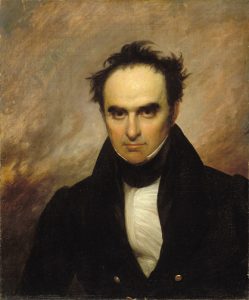
How different are the following perspectives from those of Karl Marx! Read carefully these insights from Founding Fathers John Adams and John Hancock, and from early American statesman Daniel Webster.
John Adams (1735-1826) wrote, “Government is instituted for the common good; for the protection, safety, prosperity, and happiness of the people; and not for profit, honor, or private interest of any one man, family, or class of men; therefore, the people alone have an incontestable, unalienable, and indefeasible right to institute government; and to reform, alter, or totally change the same, when their protection, safety, prosperity, and happiness require it.”
John Hancock (1737-1793) made a distinction between good government and tyranny. He said, “Some boast of being friends to government; I am a friend to righteous government, to a government founded upon the principles of reason and justice; but I glory in publicly avowing my eternal enmity to tyranny.”
Daniel Webster (1782-1852) contended that “The proper function of a government is to make it easy for the people to do good, and difficult for them to do evil.” This is exactly what Romans 13:1-7 and 1 Peter 2:13-17 say!
Principle 9

Remembering a godly heritage and God’s redemptive work keeps individuals and nations from straying away from the truth and from right living. (See Ex. 12:1-28; Deut. 5:12-15; 6:4-25; 24:17-19; Josh. 4:1-24; 1 Cor. 11:23-26; Eph. 2:11-13.)
Karl Marx understood that distorting and misrepresenting a nation’s heritage would make the people vulnerable to takeover. It’s working. Everyone readily acknowledges that our Founding Fathers were not perfect, but can we not honor them for the heritage of liberty they bequeathed to us — one that, in the end, eliminated slavery and established civil rights for all? Even now America’s not perfect, but she has come a long way toward realizing her founding ideals of equal opportunity for everyone.
Here are three statements from Karl Marx that show He understood how to create and maintain social upheaval. On this issue, Marx was correct. Americans need to be wise to these insights today.
America’s Founders advocated a thorough knowledge of history and the events that gave birth to the United States. Hear and heed the words of Roger Sherman, John Adams, and Noah Webster.
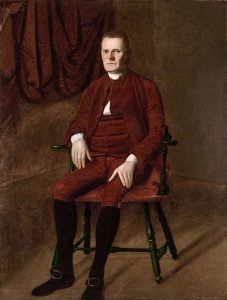
Roger Sherman (1721-1793) is the sole Founding Father to have signed all four of the principal founding documents of the Unites States:
-
-
- Articles of Association in 1774
- Declaration of Independence in 1776
- Articles of Confederation in 1777
- U.S. Constitution in 1787
-
Sherman said,
Sad will be the day when the American people forget their traditions and their history, and so longer remember that the country they love, the institutions they cherish, and the freedom they hope to preserve, were born from the throes of armed resistance to tyranny, and nursed in the rugged arms of fearless men.
In a letter to his wife Abigail dated April 26, 1777, John Adams (1735-1826) cried out, “Posterity! You will never know, how much it cost the present Generation, to preserve your Freedom! I hope you will make a good Use of it. If you do not, I shall repent in Heaven, that I ever took half the Pains to preserve it.”
Noah Webster (1758-1843) declared, “Every child in America should be acquainted with his own country. He should read books that furnish him with ideas that will be useful to him in life and practice. As soon as he opens his lips, he should rehearse the history of his own country.”
Liberty and Justice for All
Early in the study, we asked how social justice advocates have been so successful at stirring up strife in society between individuals, and especially groups. We cited two reasons — a misunderstanding of justice and a misunderstanding of freedom and liberty and what they involve.4
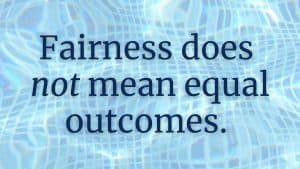 First, people do not know what authentic justice looks like. Neither justice nor fairness means equal outcomes. As Dr. Calvin Beisner contends in his excellent booklet “Social Justice: How Good Intentions Undermine Justice and Gospel,” Exercising and promoting justice means “rendering (1) impartially and (2) proportionally (3) to everyone his or her due (4) in accord with the righteous standard of God’s moral law.” The second item, proportionality, means simply that the punishment or reward fits the wrong or commendable deed in question. As background information, here is a page that lists Scripture passages supportive of each of these four elements (a printable page offering the same information is available here). You can order an updated and expanded edition of Dr. Beisner’s booklet here. A PDF file of the following slide is available here.
First, people do not know what authentic justice looks like. Neither justice nor fairness means equal outcomes. As Dr. Calvin Beisner contends in his excellent booklet “Social Justice: How Good Intentions Undermine Justice and Gospel,” Exercising and promoting justice means “rendering (1) impartially and (2) proportionally (3) to everyone his or her due (4) in accord with the righteous standard of God’s moral law.” The second item, proportionality, means simply that the punishment or reward fits the wrong or commendable deed in question. As background information, here is a page that lists Scripture passages supportive of each of these four elements (a printable page offering the same information is available here). You can order an updated and expanded edition of Dr. Beisner’s booklet here. A PDF file of the following slide is available here.
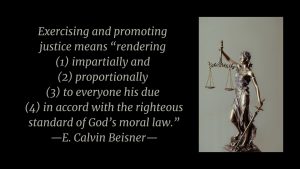
Read carefully what some of America’s Founding Fathers had to say about justice and ideas related to it. Let’s hear from John Hancock, Thomas Jefferson, and John Jay.
 John Hancock (1737-1793) condemned partiality. He wrote, “[P]eople who pay greater respect to a wealthy villain than to an honest, upright man in poverty, almost deserve to be enslaved; they plainly show that wealth, however it may be acquired, is, in their esteem, to be preferred to virtue.”
John Hancock (1737-1793) condemned partiality. He wrote, “[P]eople who pay greater respect to a wealthy villain than to an honest, upright man in poverty, almost deserve to be enslaved; they plainly show that wealth, however it may be acquired, is, in their esteem, to be preferred to virtue.”
Thomas Jefferson (1743-1826) said, “The most sacred of the duties of a government [is] to do equal and impartial justice to all its citizens.”
The most sacred of the duties of a government [is] to do equal and impartial justice to all its citizens.
—Thomas Jefferson—
John Jay (1745-1829; brief bio here) was the first Chief Justice of the US Supreme Court. Jay wrote, “Justice is indiscriminately due to all, without regard to numbers, wealth, or rank.”
A second reason the social justice movement and Marxism have been so successful in stoking conflict between groups is because of a distorted understanding of true freedom and liberty. As Josh McDowell has observed, freedom isn’t being able to do whatever you want to do; it’s having the power to do what you ought to do. Thus, freedom and liberty — and happiness as well — are tied inseparably to duty and responsibility. These are opposite sides of the same coin. A PDF file of the following slide is available here.
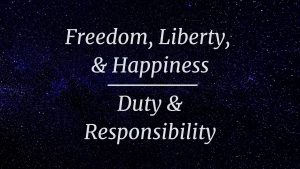
America’s Founders believed it was impossible to separate liberty from virtue. They understood a concept that Francis Schaeffer, more than 200 years later, would express this way.

In our own country we have enjoyed enormous human freedom. But at the same time this freedom has been founded upon forms of government, law, culture, and social morality which have given stability to individual and social life, and have kept our freedoms from leading to chaos. There is a balance here between form and freedom which we have come to take as natural in the world. But it is not natural. And we are utterly foolish if we do not recognize that this unique balance which we have inherited from the Reformation thought-forms is not automatic in a fallen world. This is clear when we look at the long span of history. But it is equally clear when we read the daily newspaper and see half the world locked in totalitarian oppression.
As I indicated, the Founding Fathers understood liberty’s fragility. Let’s hear from Benjamin Franklin, John Adams, Gouverneur Morris, Noah Webster, and Jedidiah Morse, who was Samuel Morse’s Father. You’ll remember that Samuel Morse was a telegrapher who created the telegraphic code that bears his name.
Benjamin Franklin (1706-1790) observed, “Virtue alone is sufficient to make a man great, glorious, and happy.”
John Adams (1735-1826) said, “The general principles on which the fathers achieved independence were the general principles of Christianity. I will avow that I then believed, and now believe, that those general principles of Christianity are as eternal and immutable as the existence and attributes of God.”

Gouverneur Morris (1752-1816) led the Committee on Style for the US Constitution; thus, some historians call him the “Penman of the Constitution.” Morris knew that if a people are to establish and maintain liberty, they must love virtue and practice it. Accordingly, he said, “Religion is the only solid basis of good morals; therefore education should teach the precepts of religion, and the duties of man toward God. These duties are, internally, love and adoration: externally, devotion and obedience; therefore provision should be made for maintaining divine worship as well as education.” Yet Morris knew that religious expressions cannot be forced; they had to be voluntary. Accordingly, he added, “But each one has a right to entire liberty as to religious opinions, for religion is the relation between God and man; therefore it is not within the reach of human authority.”
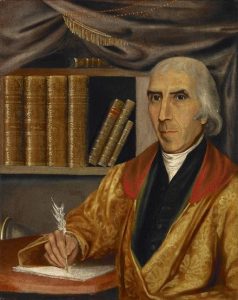
Noah Webster (1758-1843) said this: “The moral principles and precepts contained in the Scriptures ought to form the basis of all our civil constitutions and laws.…The religion which has introduced civil liberty is the religion of Christ and his Apostles.…This is genuine Christianity and to this we owe our free constitutions of government.”
Like so many Founding fathers, Jedidiah Morse (1761-1826), an early American leader and educator who became known as the father of American geography, said, “To the kindly influence of Christianity we owe that degree of civil freedom, and political and social happiness which mankind now enjoys…. Whenever the pillars of Christianity shall be overthrown, our present republican forms of government, and all blessings which flow from them, must fall with them.”

Summary and Conclusion
This last statement from Jedidiah Morse reminds us of statements made by George Washington in his Farewell Address, words we cited in our consideration of Principle 1. Let’s consider them again.
Of all the dispositions and habits which lead to political prosperity, religion and morality are indispensable supports. In vain would that man claim the tribute of patriotism, who should labor to subvert these great pillars of human happiness, these firmest props of the duties of men and citizens. The mere politician, equally with the pious man, ought to respect and to cherish them. A volume could not trace all their connections with private and public felicity. Let it simply be asked: Where is the security for property, for reputation, for life, if the sense of religious obligation desert the oaths which are the instruments of investigation in courts of justice ? And let us with caution indulge the supposition that morality can be maintained without religion.…[R]eason and experience both forbid us to expect that national morality can prevail in exclusion of religious principle.

Even though not all of America’s Founding Fathers were Christians, the vast majority were. Moreover, generally speaking, they all held a biblical worldview and sought to implement biblical teachings as they deliberated and worked together to form a new, free nation.
Accordingly, the views they held on government were opposite those that Karl Marx later would hold and advocate.

Marx believed that the people exist for the government, but America’s Founding Fathers believed that government exists for the people.
If we don’t intentionally return to the Founders’ perspective and refute Marxism and the teachings of the social justice movement, socialism will confiscate you and your property and crush your freedom. Mark it down. And know this: The same thing will happen to everybody…
…except the elites.
A summary of this study is available as a reproducible PDF download here.
Copyright © 2021 by B. Nathaniel Sullivan. All rights reserved.
top image credit: Foundation of the American Government by John Henry Hintermeister ~ from Wikipedia: “Published by the Osborne company, Newark, N.J. From the painting’s copyright description [the painting is now in the public domain]: ‘Signing of the Constitution. At desk sits Washington watching Gouverneur Morris sign; behind Morris are Roger Sherman, Franklin, Robert Morris, Madison and others, and at right Hamilton and Randolf.’ Another copyright registration caption for the Osborne print: ‘Foundation of American government. Committee signing the Constitution, with Washington presiding and Gov. Morris signing papers.'”
Copyright © 2021 by B. Nathaniel Sullivan. All rights reserved.
Unless otherwise indicated, Scripture has been taken from the New King James Version®. Copyright © 1982 by Thomas Nelson, Inc. Used by permission. All rights reserved.
Notes:
1The word sovereign is used here, not in the ultimate sense, for only God is sovereign in this way. It is used to convey the idea that human beings have qualities that reflect that God has made them in His image, and that set them apart from the rest of God’s created order. Thus, human sovereignty does not mean that people are godlike, but that they are like God — capable of having preferences, making judgments, understanding and making moral and ethical choices, and designed to be free, not manipulated or controlled by the government.
2While Jefferson expressed this sentiment slightly differently in his original draft of the Declaration of Independence, his original words served as the basis for this quote, a sentiment that was agreed upon by all 56 signers of the Declaration of Independence, including Jefferson.
3This is the eighth principle presented in the Bible study series “Principles of Economic Liberty: The Biblical Case for Free Enterprise.” The list of ten principles the study examines is based on an important paragraph in an article about capitalism by the late theologian Dr. Ronald Nash.
4We explore both of these ideas in the 6-session Bible study series titled “Principles of Economic Liberty: The Biblical Case for Free Enterprise.” We talk about the connections between liberty and responsibility in session 3 and about the meaning of authentic justice in session 6. Please consider using this material in your own personal study or with a group. Currently the series is available online and free of charge.
